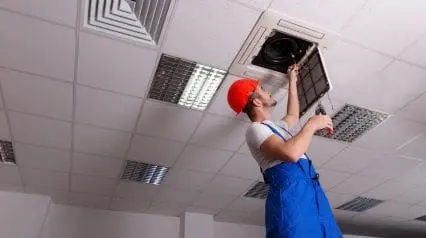What is Commercial Property Management?
Commercial property management entails a wide range of responsibilities and activities. At its core, it involves the overseeing and operational care of any commercial, industrial, or retail property. It might include office buildings, retail malls, apartment complexes, warehouses, and so forth. In these roles, commercial property managers must wear many hats to ensure that their properties adhere to relevant laws and regulations established by local governments. Furthermore, they often find potential tenants who can afford the monthly rates the property owner or landlord charges.
Difference Between Residential and Commercial Property Management
Although both types of property management may have similar vital aspects, crucial distinctions highlight the differences. Below are the primary differences between residential and commercial property management.
Clientele
Among the most significant contrasts between residential and commercial property management is the customer base you anticipate servicing. You can often expect to encounter a much different way of conducting business when dealing with residential tenants than commercial tenants.
These two types of renters have individual needs. When managing a residential property, you’ll be an intermediary between the landlord and the rental tenant. Although, the services required will remain pretty similar. However, businesses that occupy commercial properties will need widely differing services depending on their business type.
Legislation and Leases
Compared to residential leases, commercial leases are much more difficult. They often require a professional lawyer’s supervision and are longer with extension options. On the other hand, residential leases have shorter terms and do not frequently need as much legal watch.
Management Style
A manager for a residential property is often not required to stay on the premises, giving them more freedom with their time and schedule. It varies significantly from commercial properties, which typically demand that the manager be present at all times.
Why Do Commercial Property Management Companies Exist?
A property management company’s main objective is to make an owner’s life easier by shouldering most of the daily responsibilities. The specifics vary depending on the property, but in general, these are some services that many property management companies provide:
Screening Tenants
Having excellent tenants is critical for your building. The wrong ones can cause a high turnover and more vacancies later. A commercial property management company strives to fill the building with top-notch tenants by handling all prospect screening to ensure they would be an ideal match.
Retaining Tenants
Tenant retention is essential to having a successful property, and the property manager is key to keeping tenants satisfied. The property manager will maintain the day-to-day responsibilities of the building and be attentive to tenant concerns, creating a happy environment in that they will want to renew their lease.
Collecting Rent
The benefits of leasing your property are great, but ensuring all tenants pay their rent on time is crucial. Part of a property manager’s job is collecting rent from tenants and setting up an easy system for them. This way, the cash flow will always be positive and operational expenses can be paid on time. The manager will take action in case of late payments until the bill is collected.
Setting Rent
A property manager’s job is, in part, to set the rent for new tenants. They do this by ensuring the rates are attractive enough to bring prospects to the building while being compared to other nearby properties.
Negotiating Leases
If you’re a property owner but don’t have time to handle the nitty-gritty of leases and renewals, that’s where a property manager comes in. Your manager will be responsible for negotiating lease terms with both new and existing tenants on your behalf.
Facilitating Commercial Property Maintenance
The property manager is responsible for everything from completing commercial maintenance requests to hiring contractors for routine building upkeep. They make sure all requests are processed quickly and correctly while also making specific the property is presentable.
Property management companies usually have a pre-selected group of highly respected and reputable contractors that they work with, so you can be confident you’ll always have excellent professionals working on your property.
Tracking Finances
Working with a commercial property manager can help you stay on top of your expenses. They’ll be responsible for tracking all operating, marketing, repair, and more costs. This way, you can better understand where the money is coming in and going out. Plus, they follow a strict budget set by the owner and regularly report to maintain the projected gross income.
Commercial Property Marketing
Marketing a property can be challenging if you don’t have the right resources. A commercial property management company has expertise in marketing and the ability to find tenants quickly and efficiently. They’ll handle anything from launching campaigns to getting your building listed on real estate websites. This way, you’ll have a higher chance of finding the right tenants for your property.
Documenting Processes
The advantage of having a property manager is that they create and document detailed processes to ensure the building runs smoothly. The manager will outline daily tasks, emergency procedures, and more to ensure everyone takes the same steps in the same order. It ensures that all tasks are completed on time and that nothing is left out.
5 Tips for Managing Commercial Properties
If you’re a commercial property manager, use these tips to stay successful throughout the year:
Know Your Space
To be a top commercial property manager, you must understand your industry and the ins and outs of the retail spaces under your control. Unlike residential properties, every commercial space is different—housing businesses, restaurants, or other industrial sites—which means each one needs special attention to detail regarding layout and design.
The key to keeping a commercial property in top condition is understanding the specific needs of that space. This knowledge helps ensure compliance with property-specific regulations, such as the different safety measures required for restaurants compared to office spaces.
Always Be Upgrading
Although it may seem counterintuitive, routine upgrades to your facility can save you money in the long run. Today’s commercial renters are looking for newer spaces with more amenities, so if you want to stay competitive, you need to update and upgrade your area.
But don’t worry – updates don’t have to be complete renovations. Some cheap but effective updates include upgrading light fixtures, smoke detectors, smaller electrical appliances like fans, and copy machines.
Have a Proactive Property Maintenance Plan
Being proactive with your property maintenance will help you avoid problems. As a commercial property manager, you should have an ongoing routine repair and maintenance plan tailored to your property’s specific needs. To maintain a commercial building, one must account for every aspect of the building, such as:
- Plumbing
- Electrical systems
- HVAC and ventilation systems
- Landscaping
- Pest control
- Infrastructure
- Normal wear-and-tear (paint, drywall, etc.)
- Code violations
- Upgrades and replacements
Create Your Own Commercial Property Maintenance Plan
Eliminate manual tasks and streamline your operations.
Get started for FREEKeep Your Tenants Happy
If you want your commercial property to be constantly full of people and maintain high occupancy rates, you need to make every unit a safe and positive environment. It means upgrades, being proactive with maintenance plans, and, more than that, doing what it takes to meet the needs of tenants. A good manager does more than know when it’s time to do repairs; they go above and beyond for their tenants.
Invest in Commercial Property Management Software
Managing office spaces, industrial centers, and retail properties requires balancing a plethora of information, transaction details, and regulations. An effective commercial property management system can give you the necessary bandwidth to focus on what matters. Commercial property software will help you organize information to make better decisions that could influence the property’s future.




